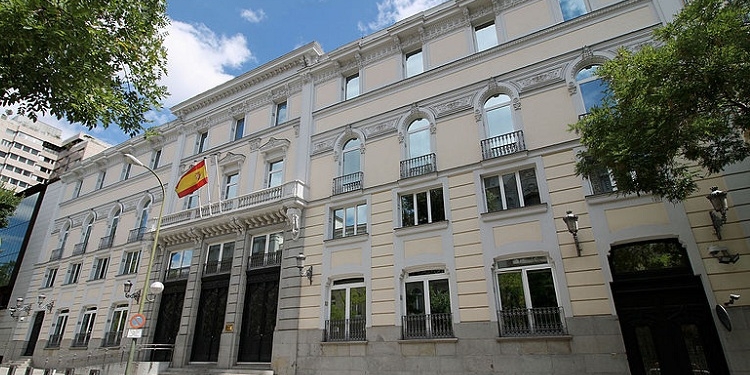The Diplomat
The European Commission has once again called on Spain to end the deadlock preventing the renewal of the General Council of the Judiciary (CGPJ) and to undertake a structural reform in this body so that at least half of its members are elected by judges, in order to avoid its “politicization”.
“The Spanish justice system continues to face some challenges. In particular, the lack of renewal of the Council for the Judiciary persists in the absence of an agreement in Parliament to renew a number of constitutional bodies”, notes the chapter corresponding to Spain in the Commission’s second annual evaluation report on the rule of law in EU countries.
For that reason, and as it did in the first review in September 2020, the Commission insists on the need for a structural reform of the election system of the CGPJ – whose mandate expired two and a half years ago – so that at least 50% of the members are appointed by the judges themselves, and not by the Parliament (as has been the case so far), “in line with European standards” and after consulting all parties involved.
“In this new report we are repeating what we already said last year, just that, because there is still no full composition of the Council since the end of 2018,” said the European Commissioner for Justice, Didier Reynders. “Our request is that European standards should apply, that there should be a majority of judges elected by their peers”, he added.
Likewise, Commission Vice-President for Values and Transparency, Vera Jourova, acknowledged that, “because of the complexity of the political situation and the deadlock (…), the majority necessary to proceed with the appointments of new members has not yet been reached and the current members remain in their posts on an interim basis”. She therefore reiterated, “on behalf of the Commission”, that “it is important to carry out the renewal of the Council and to ensure that it is not perceived as vulnerable to politicisation”, for which a system of appointments that “reinforces its independence” is needed.
In any case, the report describes as a “welcome development ” the decision of the PSOE and Unidas Podemos to withdraw (thanks precisely to pressure from Brussels) their bill to reform the system of election of members because it violated “all European standards” and would have “increased the perception of the Council as vulnerable to politicisation”.
The document also expresses its “concern” on issues such as “the competences of the Supreme Court in cases related to the criminal liability of senior officials” (although it makes no mention of the Catalan crisis), the independence of the Public Prosecutor’s Office from the Government or the “regime of incompatibilities between judges and prosecutors”.
However, the report also appreciates some progress, such as the measures, “adopted or envisaged”, to “improve the quality of justice”, among them “the revision of the legal aid system and the Code of Criminal Procedure and three other bills on procedural, organizational and digital efficiency” or the improvement of the “institutional and legal framework” to fight corruption, although it regrets, in this regard, the lack of an anti-corruption strategy to address this challenge in a more comprehensive way. The document also highlights the “efforts to address the backlog of cases, such as the creation of new courts”, although it warns of the “low number of judges per inhabitant”.







